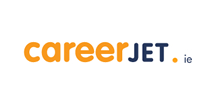In Summary
The craft of Farriery involves the making and fitting of horseshoes to prepared feet with an understanding of different styles of shoeing and trimming required for various types of work and both hot and cold shoeing techniques.
Corrective foot trimming measures, remedial shoemaking and fitting, the use of alternative materials, and the modification and fitting of manufactured shoes are also central to Farriery.
View The Craft of Farriery Brochure below for details on the Farriery Apprenticeship Training Programme.
Farriery requires knowledge of the care and management of horses. This includes the most relevant local breeds of horses and an in-depth knowledge of horsemanship, equine anatomy, physiology, conformation and movement, and foot balance. It also requires recognition of lameness and injuries to the equine foot and leg, as well as common ailments and diseases and ways of dealing with them in Farriery.
Welding operations to assist in the production and modification of tools and the forging of tools and shoes to particular requirements are vital skills.
The planning and management of all matters relating to the craft and liaison with owners and their representatives, veterinarians, and fellow Farriers are also important aspects of the craft.
View Occupation Profile from Apprenticeship.ie
To view full details of this occupation, view information from our Careers database for the following occupation: Farrier
Entry Requirements
The minimum age at which the employment of an apprentice may commence is 16 years of age.
The minimum educational requirements are:
Grade D or "Achieved" in five subjects in the Department of Education & Skills Junior Certificate Examination or an approved equivalent,
or
The successful completion of an approved Pre-Apprenticeship course,
or
Three years’ work experience gained over the age of sixteen in a relevant designated industrial activity as deemed acceptable by SOLAS.
You must obtain a job as an apprentice in your chosen occupation. Your employer must be approved to train apprentices and must register you as an apprentice within two weeks of recruitment.
To become a Farriery apprentice you may require the Ishihara Colour Vision Test (24 Plate Edition). For further information, contact your local Education and Training Board.
Note: These are the current approved minimum educational requirements for apprenticeship programmes. However, previous experience of the following subjects would be an advantage, but not essential:
- Metalwork
- Physics
- Engineering
- Technology
- Mathematics
- Biology
- Science
Training

Phase 1: With Employer
- Workplace Training and Assessments
Phase 2: The Irish School of Farriery (20 weeks)
- Induction and Safety
- Forgework
- Horsecare and Management
- Anatomy and Physiology
- Conformation and Movement
- Horseshoeing
- Arc Welding
- Work Based Training and Assessments
Phase 4: The Irish School of Farriery (10 weeks)
- Forgework
- Horseshoeing
- Anatomy and Physiology
- Conformation and Movement
- Foot and Limb Conditions
- Working as a Farrier
Phase 5: With Employer
- Work Based Training and Assessments
Phase 6: The Irish School of Farriery (10 weeks)
- Shoemaking
- Horseshoeing
- Anatomy and Physiology
- Foot and Limb Conditions
- Working as a Farrier
Phase 7: With Employer
- Work Based Training and Assessments
- The Irish School of Farriery
- Mayo, Sligo and Leitrim Education and Training Board
- Limerick and Clare Education and Training Board
- Donegal Education and Training Board
- Dublin and Dun Laoghaire Education and Training Board
- Galway and Roscommon Education and Training Board
- Waterford and Wexford Education and Training Board
- Louth and Meath Education and Training Board
- Cavan and Monaghan Education and Training Board
- Laois and Offaly Education and Training Board
- Tipperary Education and Training Board
- Longford and Westmeath Education and Training Board
- City of Dublin Education and Training Board
- Kildare and Wicklow Education and Training Board
- Kilkenny and Carlow Education and Training Board
- Kerry Education and Training Board
- Cork Education and Training Board
Skills & Qualities
As a Farrier you will need to be physically active and to be able to work with your hands.
An awareness of health and safety, good housekeeping, attention to detail, and an eye for the aesthetic are essential.
Core Skills
- Anatomy and physiology
- Conformation and movement
- Horsemanship and horse welfare
- Forging skills
- Shoemaking
- Horseshoeing
- Cold and hot fitting
- Conditions of the leg
- Conditions of the foot
- Foot balance
Specialist Skills
• Use of alternative materials
• Corrective shoeing and trimming
• Therapeutic shoeing
• Styles of shoeing
• Advanced shoemaking
• Advanced tool making
Common Skills
• Horsemanship
• Horse handling and management
• Tool making and tool maintenance
• Forging skills
• Welding
• Measurement
• Calculations
• Ratios
• Workshop safety
• Quality Assurance
Personal Skills
• Using initiative
• Working independently
• Working in a team
• Communications
• Adaptability
• Problem-solving
• Information gathering
• Planning and organisation
• Record keeping
• Business skills
• IT skills
• Manual Handling
• Customer Relations
Work Activities
- Learn and develop new practical craft-related skills, knowledge, and competencies
- Work with and learn from experienced craftspeople
- See a job through from start to finish
- Comply with Health and Safety requirements
- Use tools and operating machinery
- Be responsible for controlling or adjusting equipment
- Demonstrate good analytical and troubleshooting skills
- Understand technical drawings and diagrams
- Be accurate with numbers in counting, measuring, and arithmetic
- Be well organised and careful with practical tasks
- Take responsibility for own learning, including the allocation of study time
- Keep up to date with changing technologies
- Be physically active
- Work in a noisy environment
- Pass all your phase exams (theory, practicals, skills demonstration)
- Horsemanship
- Horse Handling and Management
- Equine Anatomy
- Forging Skills
- Corrective Shoeing and Trimming
- Therapeutic Shoeing
- Shoemaking
- Earn as you learn
Career Progression
On successful completion of the apprenticeship programme, apprentices are qualified to work within the recognised trade or profession.
Many craftspersons use their apprenticeship qualification as a platform to launch careers such as instructors, training advisors, supervisors, managers, and owners of businesses.
Where apprentices and craftspeople have the necessary ability, initiative, and basic qualifications, opportunities are available for advancement.
Opportunities
These include advanced technological and management courses available in institutes of technology, schools of management, and other education and training providers.
People in employment have a number of options for both Educational and Career Progression. It might also be possible to gain promotion within your existing company.
By using your existing qualifications and your experience you might to able to secure an alternative position in a more senior role in another company.
It may also be possible to set up your own company based again on your existing qualifications and experience.
Whatever route you decide to take, remember education is a lifelong pursuit and you can always continue to upskill and/or retrain, whatever your age.
Links to some educational and enterprise supports can be found below.
Career Progression Useful Links:
Educational Supports:
On completion of an apprenticeship, your educational progression options may be offered as full awards on the NFQ Levels 7-10.
You may also decide to embark on a partial award or to upskill in a particular area by undertaking a short specialised course.
Depending on your skills, knowledge, and experience, some of the opportunities below might be appropriate to help develop your career pathway.
- Springboard & conversion courses
- Skillnet Sector learning network courses
- Local ETB Board
- Further education training centres Fetchcourses
- Post graduate education Search Post Graduate options
Enterprise and Self-Employment Support:
If you feel you have the appropriate knowledge, skills, and experience on completion of an apprenticeship, you may decide to set up your own business. The links below might be useful to support your journey.
- Local Enterprise Offices For profit Local enterprise support
- Local Area partnerships For profit enterprise support
- Social entrepreneurs Not-for-profit enterprise support
- Franchising Developing your business under an established franchise
Getting this Apprenticeship
To become an apprentice in Ireland you must be hired by an employer. Apprenticeship employers are formally approved by SOLAS in advance of employing apprentices. Apprentices get a formal contract of employment as part of their apprenticeship.
Opportunities for this Apprenticeship arise on an ongoing basis throughout the year. In order to secure an apprenticeship contract of employment, you should target companies you would like to do your apprenticeship with by applying directly to them.
To find an apprenticeship, you can search apprenticeship vacancies and a list of currently approved apprentice employers on the Apprenticeship Jobs & Employers Portal (You can search for vacancies by location and employer in each apprenticeship).
Use this link to explore a list of Approved Employers by Region and by Apprenticeship type.
Full eligibility criteria for this apprenticeship are available in the Farriery Apprenticeship brochure .
Learn more on the Farriery Ireland website here
Finding an Employer
Finding an employer or registering your interest with an official Coordinating Provider is one of the first things you need to do to start an apprenticeship.
To find an apprenticeship and secure an apprenticeship work contract you can search apprenticeship vacancies on the Apprenticeship Jobs Portal . You can search for vacancies by location and by apprenticeship type.
Your local Education and Training Board may also hold details of employers seeking to employ an apprentice.
You should also directly connect with local employers who might be interested in taking on an apprentice. It is a great idea to get a part time job with a local employer who might be more inclined to take you on as an apprentice following a successful work experience placement or a part time job contract.
Further information about this apprenticeship may be available from the following organisations on this website:
Organisations supporting this apprenticeship
Where we know of supporting organisations we list these below:
Online Job Sites
Here are some direct links to employment websites that frequently list apprenticeship vacancies.
Note: These websites may include vacancies that are not QQI accredited Apprenticeships.
Pay & Fees
As an apprentice, you earn while you learn.
Employment Salary (On-the-job)
The employer pays you a salary while you are being trained on-the-job. The rate of pay is agreed between you and your employer.
Training Allowance (Off-the-job)
A training allowance is paid by the local Education and Training Board (ETB) while you are attending the off-the-job training. In some cases, a contribution towards travel or accommodation costs may be paid.
The sector the apprentice's employer is engaged in will determine the allowance payable. These allowances are calculated on the gross wages paid by industry in each sector. The weekly gross wage norms for different industries are listed below.
Information on taxation of off-the-job payments can be found here.
Apprentices are not required to pay a student contribution for this apprenticeship.
















